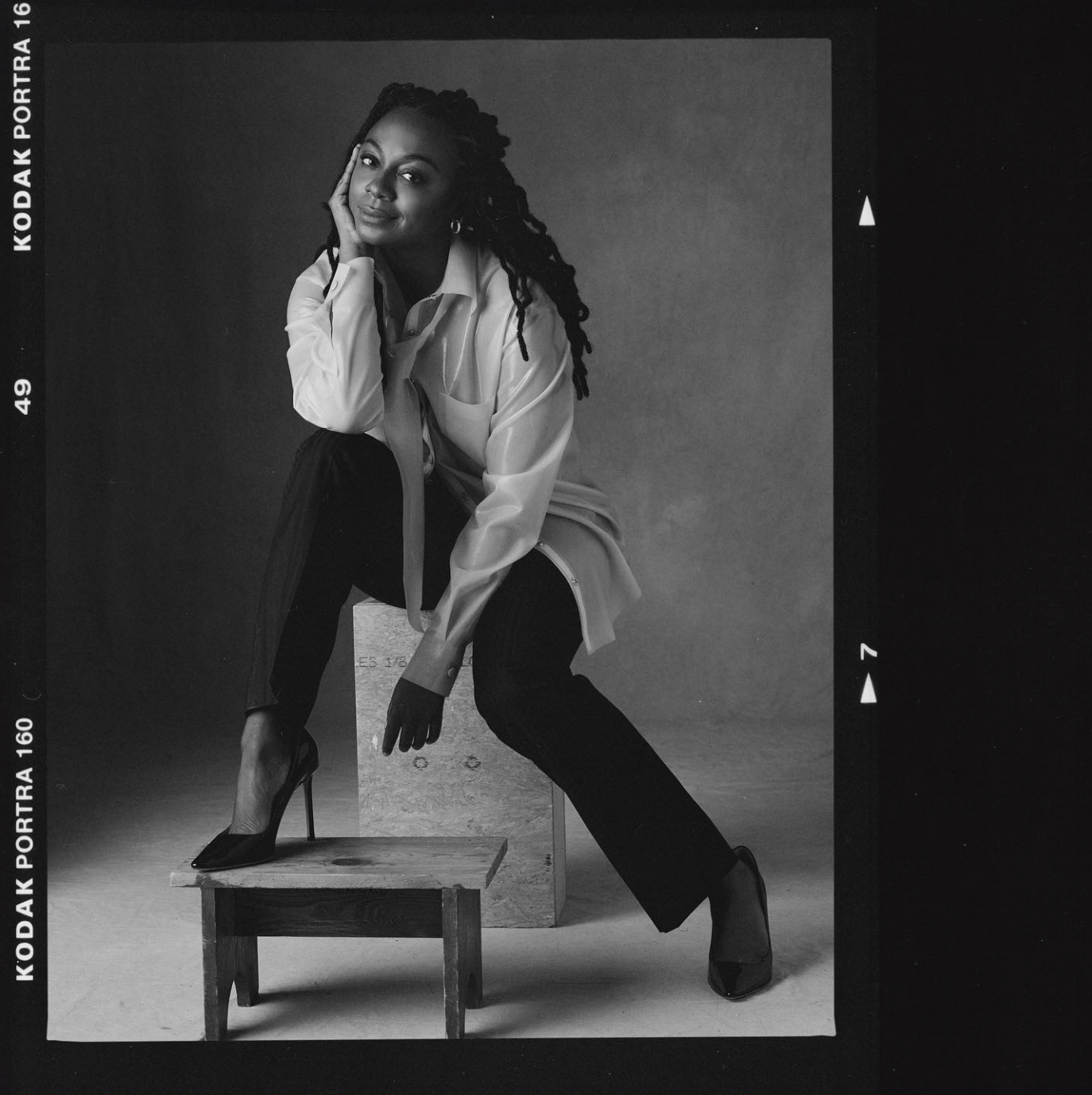With Her First Wives Club Reboot, Tracy Oliver Is Running the Show
After major success with Girls Trip, the filmmaker is using her platform to tell classic stories in fresh (and hilarious) ways.

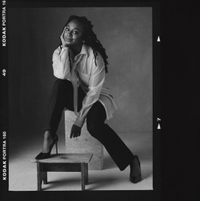
We’re in an unassuming Brooklyn corner bar that’s been transformed into drag-queen central. The mood is tense. Cast members of the upcoming First Wives Club reboot, a TV series based on the 1996 film and premiering on BET this summer, are struggling to rehearse a dance scene; the song meant for the final cut is still being recorded, so they’re grooving in silence. A castmate breaks up the awkwardness, suggesting, “We can practice with ‘Back That Azz Up!’”
The actors laugh, then film the scene again, this time with Juvenile as background. The assembled crew members start bopping along to the song—the show’s creator, showrunner, and executive producer, Tracy Oliver, included. Everyone starts getting hype, shimmying a little harder, calling out a supportive “Ay.” Oliver, though, stays focused. For this episode, she’s in the director’s chair, studying the actors’ every move, gesturing at the choreographer at the end of the take, reviewing her notes.
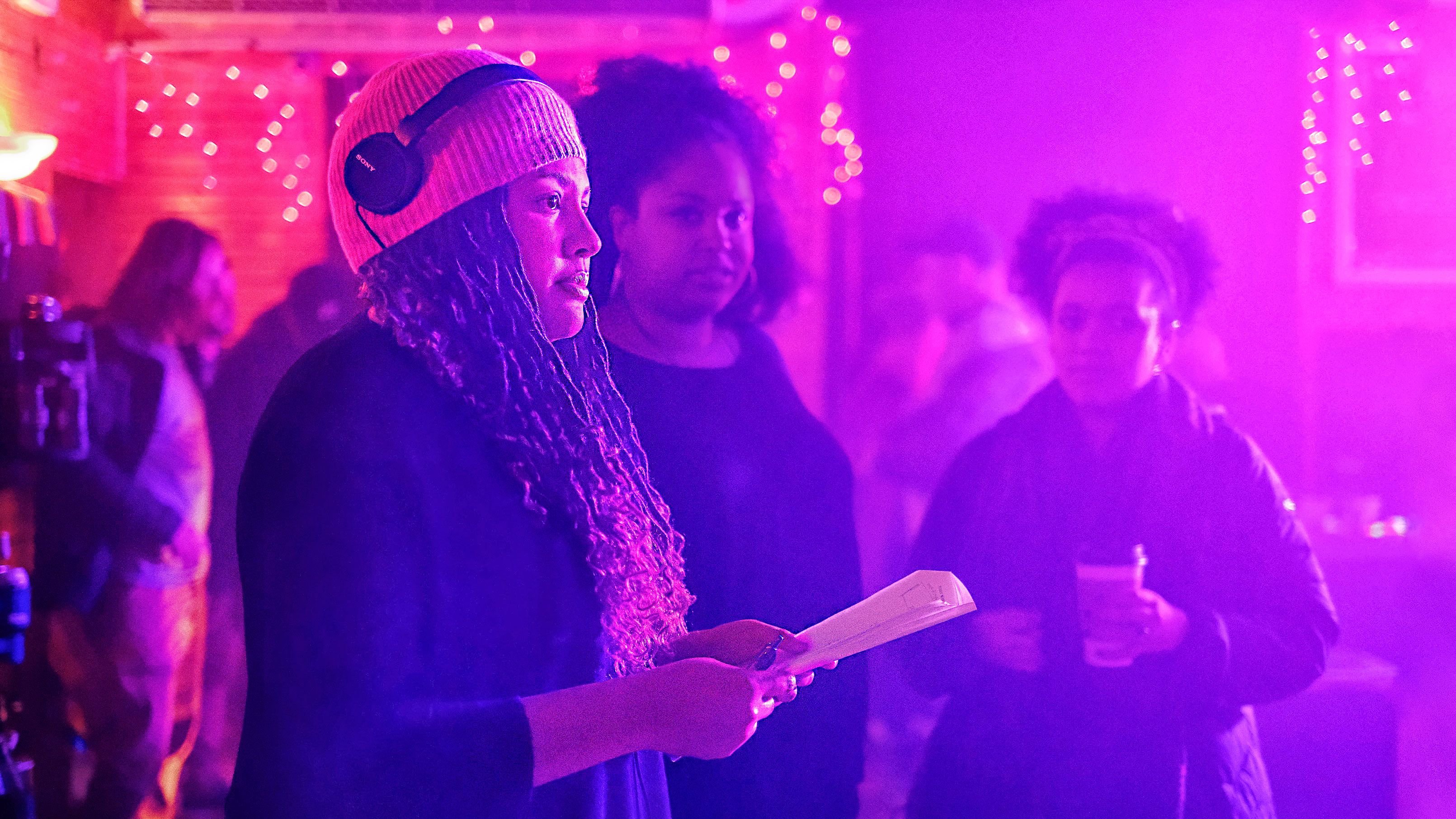
The scene feels like an instant party, and Oliver, 32, is ultimately the one throwing it. She’s the brains behind the production—the pilot she wrote got the reboot greenlit—and the project is her buzziest since she made history in 2017 as the first black female screenwriter of a film that grossed over $100 million. (Oliver cowrote Girls Trip, the sisterhood comedy starring Tiffany Haddish, Regina Hall, Queen Latifah, and Jada Pinkett Smith, which made $140 million at the box office.)
Her path to this moment started when she was a kid watching the movie The First Wives Club, starring Goldie Hawn, Bette Midler, and Diane Keaton, about three women plotting revenge on their ex-husbands, with her mom and sister as they smooshed together on their living-room couch in Columbia, South Carolina. “My sister’s more of a sci-fi nerd. I was always about movies like Clueless and more girly stuff. My mom liked her soaps,” she says. “It’s the one movie I remember all of us watching and liking. Even now, if it’s ever on TV, we’ll stop what we’re doing and watch.”
I’ll have friends watching Girls Trip, and they’ll be like, ‘Bitch, you really had to put that scene in there?!’
Though only 11 at the time, Oliver was already picking up on the film’s middle finger to the ageism women face. “What I found universal was this idea that women were irrelevant after they hit 40. Even then, I was like, That’s awful.” Despite that realization, Oliver has felt her own share of anxiety about getting older. “I was dreading turning 30. I thought, I’m no longer young, like, This is a sad, sad time. I really thought that if I hadn’t found the perfect guy, career, and family by the time I was 30 that I was a failure,” she says. “I put all of this pressure on myself.” (She says so far her 30s have brought more calm about aging and success.)
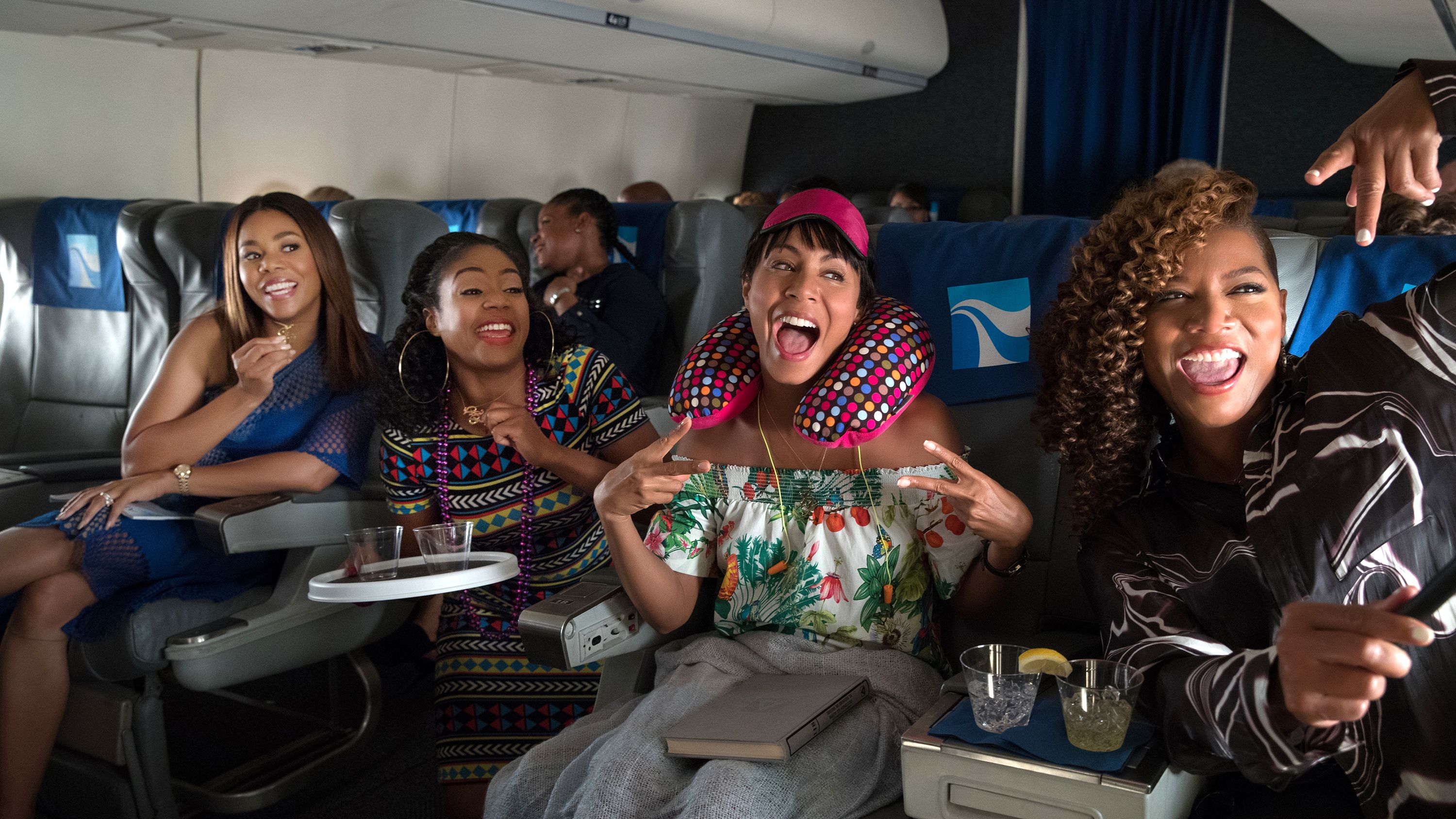
Oliver believes fiction is better when rooted in fact. True-life events provided some of the best material in Girls Trip. (That scene where Queen Latifah’s character mistakes a lamp for a sexy man? It really happened.) “I’ll have friends watching Girls Trip, and they’ll be like, ‘Bitch, you really had to put that scene in there?!’” Oliver says. With First Wives Club, she was adamant that the stars be over 40, and she also channeled her age-related stress when writing. “There’s a character in a particular episode who has a moment of panic and a meltdown when she sees her soon-to-be ex-husband with this younger biracial model. It’s a hard thing to accept on all levels,” she says. “There are examples of celebrity black men whose second wives are younger and more mixed than their first wives, and a friend who’s a darker-skinned black woman told me a prominent black man working in the film business said he could now ‘afford a light-skinned wife,’ which we both found pretty upsetting.”
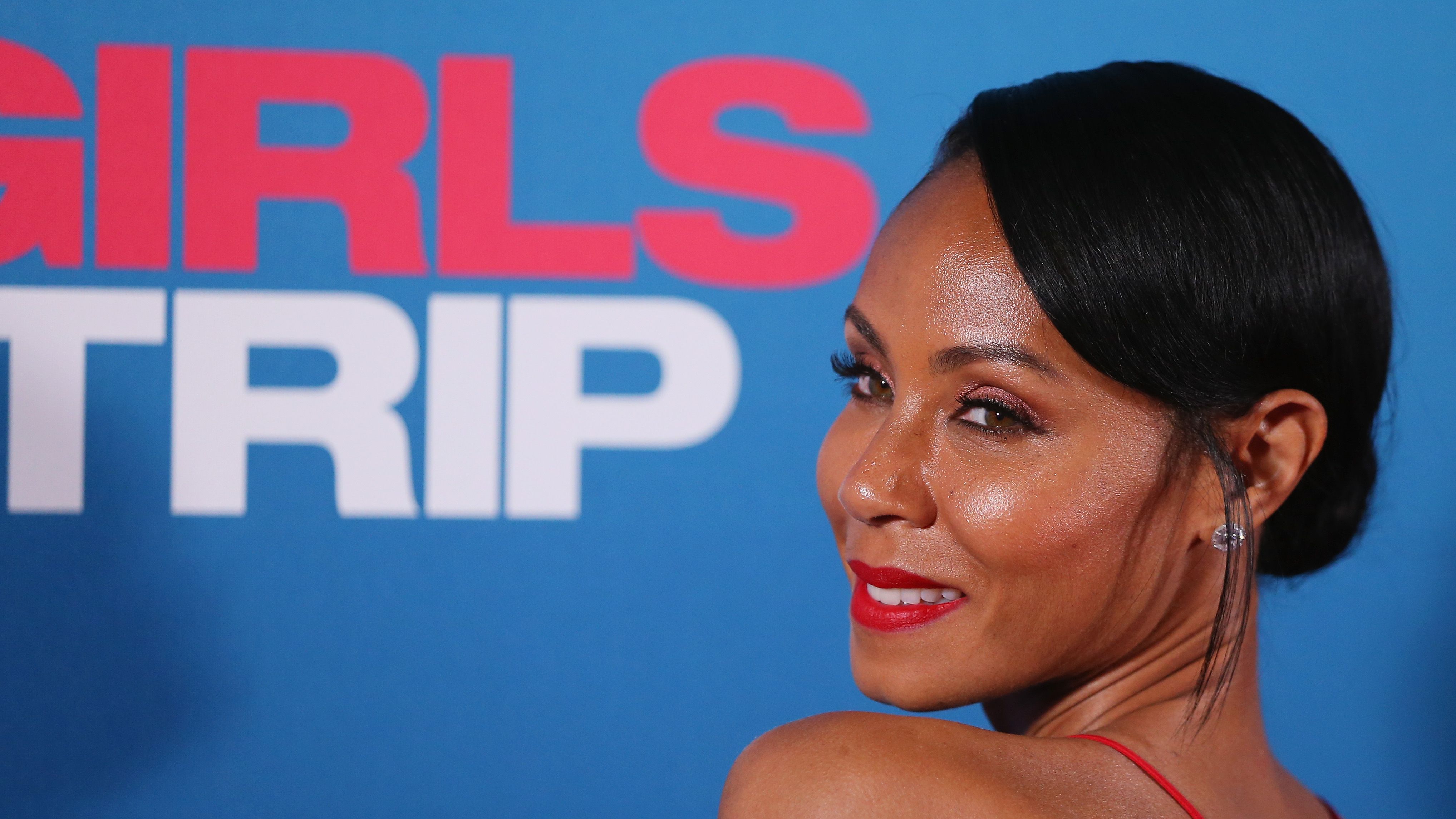
To explore these complex issues, Oliver didn’t strictly remake The First Wives Club; instead, she respectfully reimagined the original, basing her version more on the mood and feelings espoused in the film and less on the specifics. Her story is set in 2018, and Oliver cast a trio of black women—Jill Scott, Ryan Michelle Bathe, and Michelle Buteau—as the leads.
Get exclusive access to fashion and beauty trends, hot-off-the-press celebrity news, and more.
That sort of refreshing storytelling didn’t come easily to Oliver. She spent her undergrad years studying acting at Stanford, moved to Los Angeles, and was unimpressed by the acting roles available for black women. So she enrolled in the USC School of Cinematic Arts’s Peter Stark Producing Program, where she learned more about the behind-the-scenes aspects of film. She used those skills when she reunited with fellow Stanford grad Issa Rae—the two met in a drama class as freshmen—to produce, write, and act in Rae’s Web series The Misadventures of Awkward Black Girl, which led to cowriting Barbershop: The Next Cut, Girls Trip, the screen adaptation of Nicola Yoon’s best-selling novel The Sun Is Also a Star (featuring Yara Shahidi and premiering in May), and now First Wives Club.
“We talk about tough scenarios in a comedic way, but it can be painful. We don’t just say, ‘Oh, women are beautiful and things are perfect no matter what.’”
Oliver realizes she has a platform to empower others: her writers, her crew, her cast, her viewers. “Studios and networks tend to hire based on experience, which makes sense,” she says. “But a lot of people of color and women don’t get opportunities because of their lack of experience. It’s a catch-22. So I said to hell with experience and fought for people I knew in my gut would do a good job.” She tries to lift up her team in a way that isn’t condescending, that doesn’t ignore the fact that women of color—particularly black women—regularly feel the systemic injustices waged against us on a daily basis. Her writers’ room is made up of a gay black man, two white women, and three black women, two of whom she says are hilarious and talented but have never been hired for a TV gig before. “I wanted fresh voices, new ideas, and people to speak up because that’s something I experienced a lot in writers’ rooms—being shut down and spoken over by men, things that led to a negative work environment,” she says. “I wanted my writers’ room to be a safe space.”
Onscreen, she aims to steer clear of clichéd storylines that ignore reality. “We talk about tough scenarios in a comedic way, but it can be painful. We don’t just say, ‘Oh, women are beautiful and things are perfect no matter what.’ ”
Trying to change how stories are told in Hollywood keeps Oliver’s head buzzing. “I wanted a show that you can watch when you come home from work, that’s relaxing and reminds you of people you know. It’s not challenging to watch. You don’t have to overthink it, but it’s smart at the same time. It should make women feel good.” And, really, isn’t that something we all need?
A version of this article originally appeared in the April 2019 issue of Marie Claire.
RELATED STORY
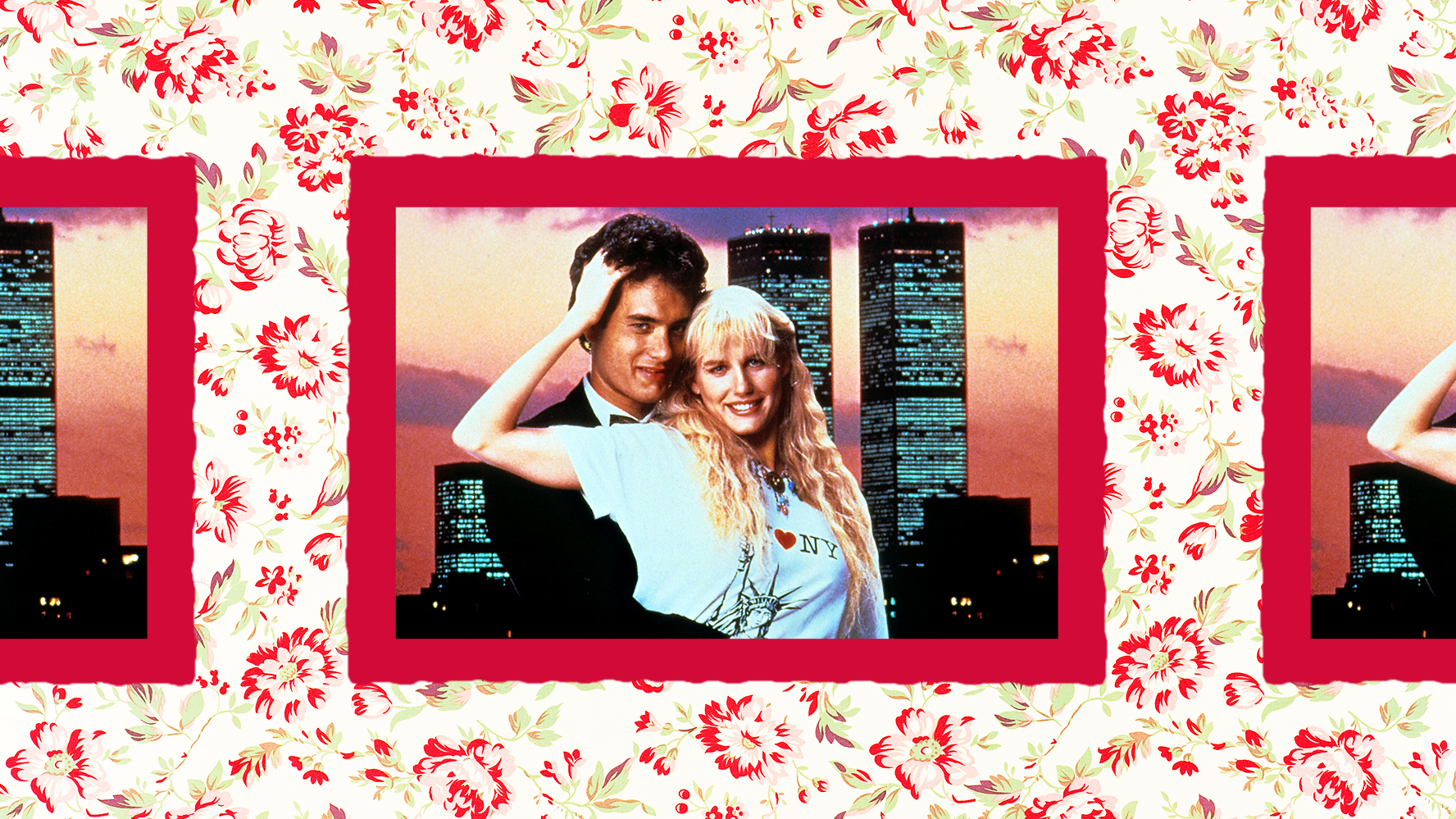
Jazmine Hughes is a writer living between New York and Mexico. In 2023, she won the National Magazine Award for profile writing.
